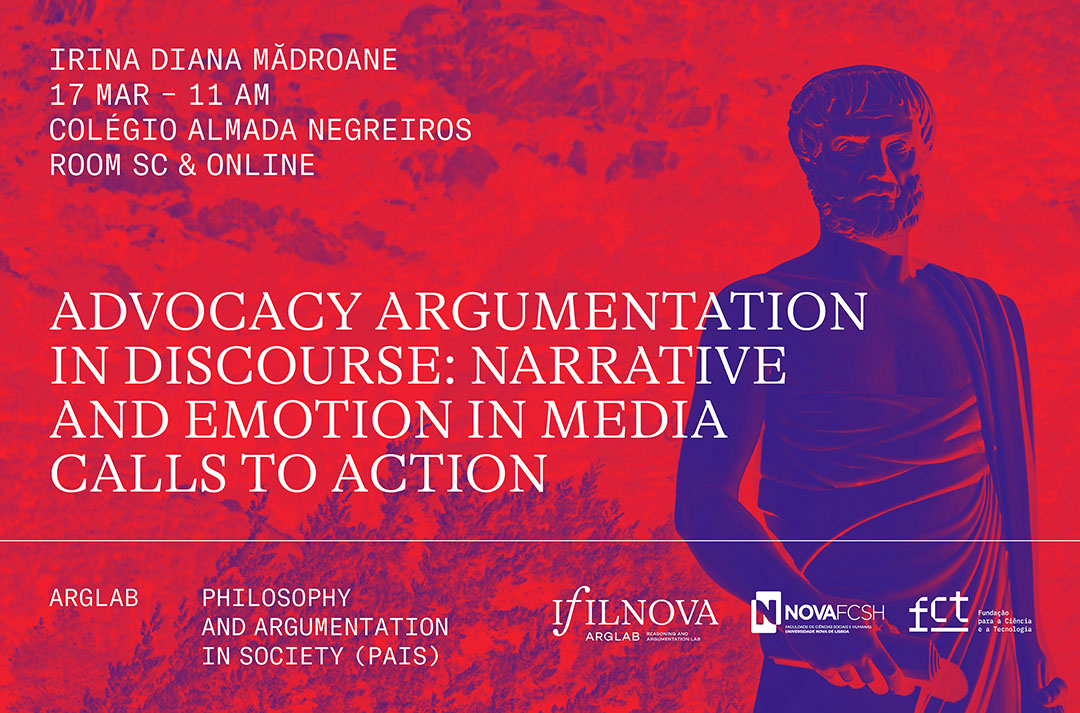Irina Diana Mădroane

My talk explores the use of narratives in media advocacy campaigns in relation to practical arguments that invite audiences to reflect upon a course of action and make a decision to act, for example by signing a petition with social change objectives or becoming otherwise engaged. I take the rhetorical and socio-pragmatic view that arguments stem from and are shaped in the situation of their production and consumption, which involves the participation of audiences and the articulation of different genres, discourses and semiotic modes that contribute in their distinct ways to reasoning in that situation (Amossy 2009; Charaudeau 2014; Fairclough & Fairclough 2012; Tindale 2019, 2021). In this sense, arguments are “dynamic” and co-produced by the audiences they aim to persuade in particular contexts (Tindale 2019, 2021). Acknowledging the complexity of the debate regarding the interconnections between narrative and argument (Olmos 2017), I take up Christopher W. Tindale’s view that the narrative in argumentation has to be considered in its specificity: its structure, discourse and style have the capacity to “activate”/“make present” beliefs, but also values, in the audiences’ “cognitive environments”, by engaging them “meaningfully”, in relation to their concerns and goals, and contributing, thus, to decision-making and, possibly, to action (Tindale 2019, 2021). Along these lines, the narrative may be seen to play a role of framing by making premises salient and attempting to steer audiences towards a certain conclusion (Fairclough 2016; Fairclough & Mădroane 2020; Greco Morasso 2012). While not without problems, the connection established by scholars from different disciplines (Scarantino & De Sousa 2018) between emotion, evaluation and action, indicates that the elicitation of emotion is crucial to mobilization, and the narrative is a genre that can easily foster emotional engagement, for example through character identification.
I will discuss strategic uses of narratives in media advocacy campaigns to enable the audiences’ understanding of the situation presented from a personalized perspective, to orient them towards the claim(s) made, as well as to arouse emotions such as moral indignation and compassion, which can stir them into action. I will further consider the integration of analytical tools from discourse and narrative studies into the analysis of practical argumentation in contexts of communication such as those related to media advocacy. Finally, I will point to several of the major challenges originating in the scholarly controversies and uncertainties about the link between narratives, emotions, value judgments and action. For illustration, I will use media advocacy campaigns from Romanian television (Any Idea What Your Parents Are Doing Right Now? ProTv, 2014) and from the British print press (Refugees Welcome, The Independent, 2022-ongoing).
Irina Diana Mădroane (PhD; West University of Timișoara, Romania)
To join the session on Zoom, use this link.

